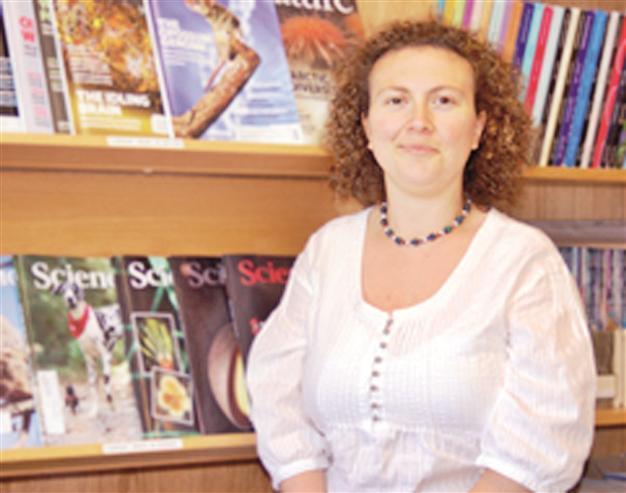Turkish scientist who sheds light on brain cells awarded three grants
ISTANBUL

Hande Özdinler has been awarded
three grants more than $2.5 million.
Turkish scientist Hande Özdinler, PhD, assistant professor of neurology, has been awarded three grants totaling more than $2.5 million, according to feinberg.northwestern.edu news. The funds will be used to increase her research efforts into the mechanisms behind amyotrophic lateral sclerosis. In the cell line generated by the Ozdinler lab, only the upper motor neurons in the motor cortex are tagged fluorescent, allowing researchers to investigate the details of their cellular pathology with unprecedented clarity and precision.
The awards, two from the National Institutes of Health (NIH) and one from the ALS Association (ALSA), will fund projects investigating the molecular mechanisms behind the disease, further studying a gene crucial to the lab’s most recent discovery, and creating new mouse models.
“As we learn more about the genetics of ALS, we have come to realize that there are multiple genes involved,” said Özdinler, a member of the Robert H. Lurie Comprehensive Cancer Center of Northwestern University. “With that as our starting point, one of our goals is to identify the pathways these genes affect.”
The new awards arrive on the heels of Özdinler’s work published in The Journal of Neuroscience this spring. In this study, her lab isolated the motor neurons in the brain that die in ALS, giving them fluorescent tags so they can be easily seen. The process removes the complexity of pinpointing and extracting these neurons during surgery, a practice previously beyond the scope of most scientists.
“I think the discovery is really going to open up the field because, for the first time, we are able to easily study these cells, make mouse models, and do drug discovery,” Özdinler said. “Scientists used to ignore the upper motor neuron as too complex, but our lab’s focus for the past five years has truly paid off.”
Supported by the Les Turner ALS Foundation and the Wenske Foundation since arriving at Northwestern University Feinberg School of Medicine in 2008, Özdinler’s recent successes have been a half-decade in the making.
